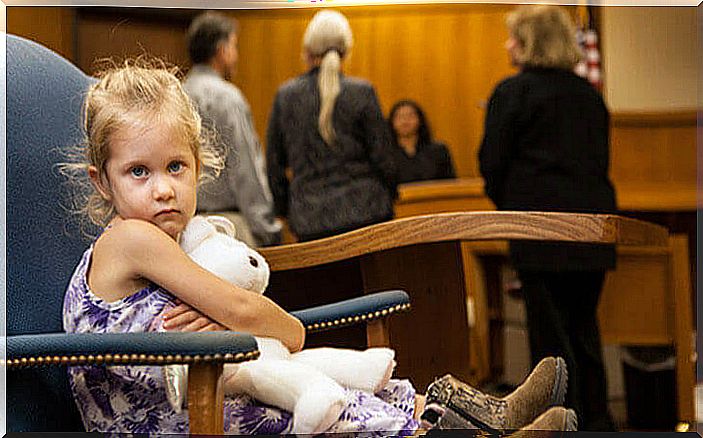Legal Representation And Custody Of Minors

Before the law, the parents, provided they have custody of their children, are also responsible for legal representation for their underage children. Therefore, parents have numerous duties and responsibilities towards their children. You must offer them protection and care and allow them to develop appropriately, physically, intellectually, and emotionally.
In order to be able to fulfill these duties and responsibilities and also to make the correct and necessary decisions to protect the minor children, the parents need sufficient legal authority over the children. This is known as custody or parental custody.
Custody refers to all the powers that the law grants parents over their children and their property. However, there are also cases in which either or both parents are deprived of custody of their children.
In today’s article, we’re going to explain what legal representation for minors is and how it differs from parental control.

What is the custody?
Custody or parental authority refers to all aspects and powers that the law has conferred on parents of minor children. Essentially, this has both personal and asset- related consequences.
The main duties that parents have as guardians of their children include care, supervision, nutrition, upbringing and the best possible integral education for the children. In addition, the parents are also responsible for the legal representation of their children and the administration of their property.
Legal representation of the children is therefore part of parental responsibility.
When do custody and legal representation end?
The custody and legal representation of a child end when the child reaches the age of majority, i.e. the child’s 18th birthday.
If a child is not in a position to regulate their affairs in whole or in part by the time they reach the age of 18, for example due to a mental illness, their custody expires. In this case, a legal guardian is appointed who has the appropriate authority.
What happens after a divorce?
If the parents get divorced, both parents will continue to have equal custody of their children. In addition, a court can make a different decision in individual cases.
However, in reality it is the case that the parent with whom the children actually live will assume the predominant responsibility for bringing up children. Nevertheless, all decisions must be discussed with the other legal guardian and made together.
In addition, there are some situations in which both parents have to agree together. This includes, among other things, special purchases, important decisions in the child’s life, trips abroad, etc.

Custody and legal representation: are there differences?
Parents who have custody of their children are also required to represent their children in legal matters. You can also represent them in matters relating to the children’s personal rights, if the children could also represent themselves. When their skills and responsibilities are called into question, parents can and should intervene.
However, there are some exceptions where parents cannot legally represent their children. In addition, approval from the family court is required in some cases. This concerns business with real estate, denial of inheritance, credit transactions, assumption of guarantees, etc.
In addition, the parents must give their consent if a minor signs a vocational training contract, for example.

If there is a conflict of interest between the parents and their minor child, the youth welfare office appoints a lawyer to represent the minor during the proceedings.
If the conflict only exists with one of the parents, then the other parent is responsible for providing legal representation for the minor child. Ultimately, the best interests of the child come first in all situations.









